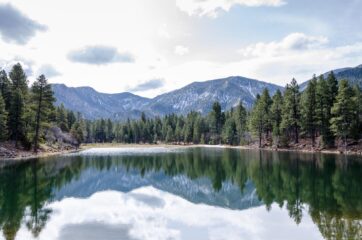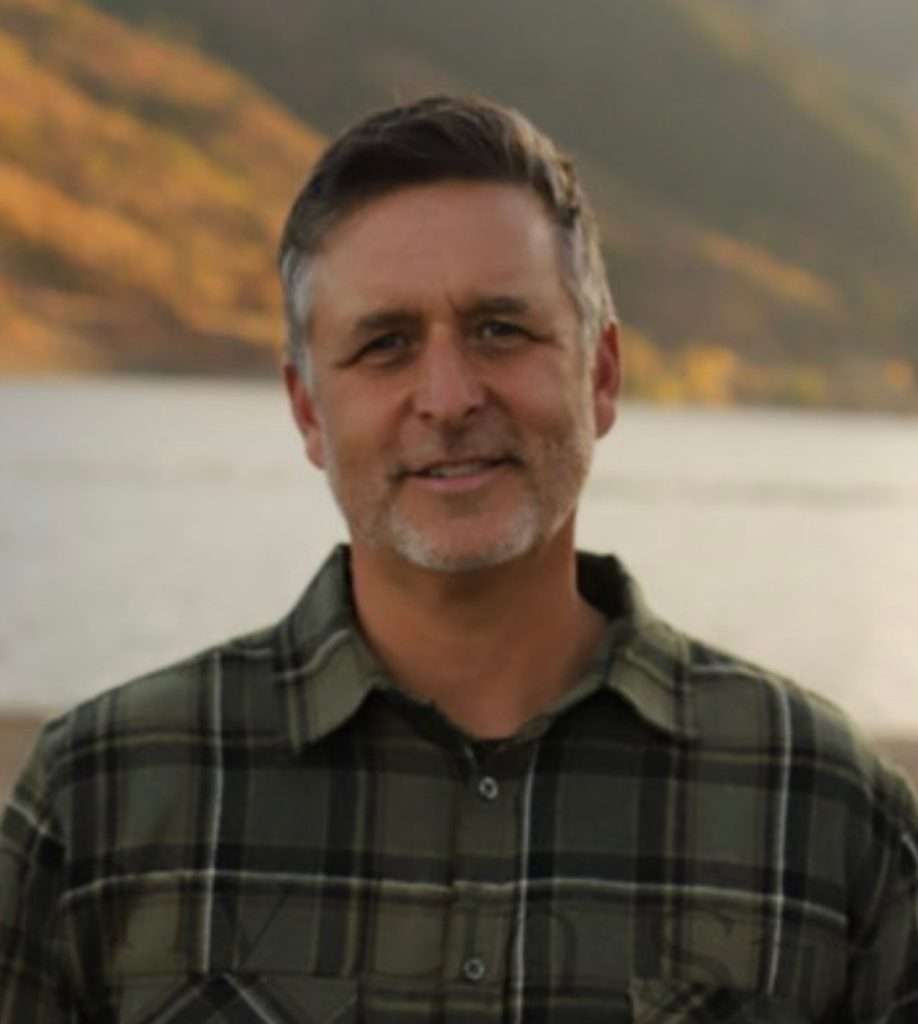The Essence of Utah Wilderness Therapy Beyond Hiking
Is wilderness therapy more than just hiking? Absolutely. Utah wilderness therapy represents a specialized form of outdoor behavioral healthcare that extends far beyond recreational trail walking. We design these programs as comprehensive mental health treatment outdoors, specifically targeting teens and young adults grappling with substance abuse, behavioral challenges, and complex mental health conditions.
The therapeutic framework integrates intentional outdoor activities:
- Camping expeditions that build routine and responsibility
- Backpacking journeys fostering resilience and problem-solving
- Survival skills training developing self-reliance and confidence
- Group challenges promoting healthy peer connections
Each activity serves a clinical purpose. When participants learn to build shelter, navigate terrain, or purify water, they’re simultaneously developing coping mechanisms and confronting the patterns that brought them to treatment. Outdoor addiction treatment Utah programs like ours combine the healing properties of nature with evidence-based therapeutic interventions, creating an environment where lasting change becomes possible. The wilderness isn’t just our backdrop—it’s an active participant in the healing process.
Clinical Foundations Integrated in Wilderness Therapy
Licensed clinicians are the backbone of legitimate wilderness therapy programs. They bring professional expertise that sets clinical treatment apart from simple outdoor recreation. These mental health professionals—including therapists, psychologists, and clinical social workers—maintain active licensure and deliver evidence-based interventions adapted for wilderness settings.
Clinical approaches used in wilderness therapy
The clinical approaches used in wilderness therapy draw from established therapeutic frameworks:
- Dialectical Behavior Therapy (DBT) teaches emotional regulation and distress tolerance skills particularly valuable when facing wilderness challenges
- Cognitive Behavioral Therapy (CBT) helps participants identify and restructure thought patterns while navigating real-world outdoor obstacles
- Psychodynamic approaches explore underlying emotional patterns revealed through group dynamics and expedition experiences
Individual therapy sessions occur during trail time or at camp, while group therapy leverages the natural community formed during shared wilderness experiences. Each participant receives a personalized treatment plan addressing emotional wounds, physical health, social skills, and spiritual development. This comprehensive approach ensures clinical rigor matches the intensity of the wilderness environment, creating conditions where genuine transformation becomes possible.
Therapeutic Benefits of Nature in Clinical Treatment
The benefits of wilderness therapy go far beyond just hiking. Studies show that being in nature causes noticeable changes in our bodies. When we spend time outdoors, our cortisol levels (the main stress hormone) drop significantly, and our serotonin production (a mood-regulating neurotransmitter) increases. This biological response creates an optimal foundation for therapeutic work, allowing participants to engage more deeply with clinical interventions.
How Nature Therapy Helps Mental Health
Research on nature therapy for mental health shows impressive improvements in several areas:
- Increased mindfulness and awareness of the present moment through engaging our senses with natural surroundings
- Greater resilience as participants face difficult trails and unpredictable weather
- Enhanced thinking skills and problem-solving abilities through hands-on learning experiences
- Boosted self-confidence from acquiring survival skills and outdoor expertise
The Role of Nature in Reducing Anxiety, Depression, and Stress
When we are in the wilderness, our nervous system has a chance to naturally calm down. This makes it easier for us to reduce anxiety, depression, and stress. Activities done outdoors—such as building a shelter, purifying water, or using a compass to find our way—require us to focus completely and provide instant feedback. These practical experiences help ground participants in reality, interrupting cycles of overthinking and negative thoughts that contribute to mental health issues.
How Experiential Therapies Enhance Clinical Care
Clinical treatments become more effective when combined with experiential therapies like wilderness therapy. These approaches tap into different ways of healing that go beyond traditional methods.
Art Therapy: Expressing Emotions through Creativity
Art therapy sessions held in outdoor settings provide participants with an opportunity to explore and understand their complex emotions through various forms of creative expression. Activities such as:
- Sketching landscapes
- Crafting with natural materials
- Journaling under open skies
These artistic endeavors create a safe and open environment where individuals can gain insights that may not be easily accessible through conventional talk therapy.
Music Therapy: Connecting with Emotions through Sound
Music therapy programs designed for addiction recovery incorporate rhythm and sound as integral components of the therapeutic process. Activities like:
- Drumming circles around evening campfires
- Guided musical exercises during group sessions
These musical interventions help individuals reconnect with emotions they have learned to suppress, fostering a deeper understanding of their internal experiences and facilitating external expression.
Psychiatric Care: Comprehensive Treatment in Nature
Our approach places great importance on psychiatric care. Licensed psychiatric professionals are present in wilderness settings to provide medication management as part of the treatment plan. This ensures that participants receive holistic care addressing both psychological and physiological needs.
By integrating psychiatric care into the wilderness experience, we eliminate the need for individuals to choose between evidence-based medical treatment and transformative outdoor activities.
Complementary Modalities: Supporting Self-Discovery
The creative therapies mentioned earlier work in conjunction with established therapeutic frameworks such as DBT (Dialectical Behavior Therapy) and CBT (Cognitive Behavioral Therapy). They offer alternative avenues for self-discovery when verbal communication feels insufficient.
In moments when words fall short, a charcoal drawing or harmonica melody can convey emotions that have been buried beneath years of unhealthy coping mechanisms. This aligns with research findings that suggest the effectiveness of art therapy in facilitating emotional expression and self-discovery.
Addressing Root Causes Through Intensive Clinical Interventions
The wilderness setting creates unique opportunities for intensive clinical work that reaches beneath surface-level symptoms. Walk-and-talk therapy wilderness sessions allow clinicians to engage clients during physical movement, which often loosens psychological defenses and facilitates honest dialogue about underlying issues. These expedition-based interventions naturally surface unhealthy coping mechanisms as participants navigate real challenges—setting up camp in adverse weather, managing limited resources, or working through interpersonal conflicts with peers.
Our clinical team employs structured feedback approaches like the Milan Method feedback techniques, which use circular questioning and systemic observation to help participants recognize patterns in their behavior and relationships. These methods prove particularly effective in wilderness settings where authentic reactions emerge without the usual social masks people wear in traditional therapy offices.
The absence of digital distractions and daily life pressures creates a psychological container where deep therapeutic work becomes possible. Participants can’t retreat into familiar avoidance strategies—no phones to scroll, no rooms to isolate in, no substances to numb difficult emotions. This intentional removal of escape routes, combined with the supportive presence of trained clinicians, allows men to confront the root causes of their struggles with unprecedented clarity.
Men’s-Specific Benefits Within Wilderness Therapy Programs
Men face distinct mental health challenges that often go unaddressed in traditional treatment settings. Societal expectations around masculinity can create barriers to vulnerability, making it difficult to process emotions or seek help. Men’s-only recovery programs in Utah specifically address these patterns by creating spaces where men can drop the facade without judgment.
The benefits of wilderness therapy for men extend beyond individual healing. Male cohorts develop genuine brotherhood through shared challenges—setting up camp in adverse weather, navigating difficult terrain, or supporting each other through emotional breakthroughs. These experiences build trust in ways that traditional therapy rooms cannot replicate.
Physical challenges inherent in wilderness settings provide natural pathways for emotional regulation. When a man learns to manage frustration while starting a fire or maintains composure during a demanding hike, he’s developing transferable skills for managing anger, anxiety, or impulsivity in daily life. The wilderness becomes a training ground for building self-confidence rooted in authentic accomplishment rather than external validation.
Male-specific programming recognizes that men often process emotions through action and shared experience rather than solely through verbal expression. This approach honors masculine strengths while expanding emotional capacity.
Safety, Accreditation, and Ethical Considerations in Utah Wilderness Therapy
The history of wilderness therapy includes troubling chapters. Unregulated camps operated without proper oversight, leading to safety incidents that rightfully raised concerns among families and mental health professionals. These past failures highlight why Utah wilderness therapy regulation and rigorous standards matter.
Accreditation through organizations like the Outdoor Behavioral Healthcare Research Center establishes benchmarks for ethical practice and participant safety. These standards cover:
- Staff-to-participant ratios ensuring adequate supervision
- Emergency response protocols and medical care access
- Qualified clinical staff with appropriate licensure
- Transparent communication with families throughout treatment
Program accreditation outdoor behavioral healthcare separates legitimate therapeutic interventions from potentially harmful programs. At Spirit Mountain Recovery, we maintain these accreditation standards as non-negotiable elements of our Utah wilderness therapy approach. Our commitment to this means regular audits, continuous staff training, and adherence to evidence-based practices that prioritize your safety while delivering effective clinical care in wilderness settings.
Taking the Next Step Toward Healing in Nature’s Embrace
The path to lasting recovery requires more than good intentions—it demands a clinically sound, evidence-based approach delivered in an environment that supports genuine transformation. Enrolling in a wilderness therapy program in Utah offers men struggling with addiction or mental health challenges a proven alternative to traditional treatment settings.
Our Spirit Mountain Recovery programs integrate licensed clinical care with the therapeutic power of Utah’s wilderness. We combine DBT, CBT, and trauma-informed therapies with experiential learning in nature, creating a holistic treatment model that addresses the root causes of addiction and mental health struggles.
Our outdoor addiction treatment programs in Utah provide:
- 24/7 clinical supervision by licensed professionals
- Individualized treatment plans addressing your unique needs
- Safe, structured wilderness experiences that build resilience
- Evidence-based therapies proven effective for lasting change
However, our Utah wilderness therapy isn’t just hiking—it’s a comprehensive clinical intervention that can reshape your relationship with yourself, others, and your recovery journey. If you’re ready to step into healing, we’re here to guide you through it. Before you embark on this transformative journey, make sure to check our what to bring guide for essential items and helpful tips for a comfortable stay.
FAQs (Frequently Asked Questions)
What is Utah wilderness therapy and how is it different from just hiking?
Utah wilderness therapy is an outdoor behavioral healthcare approach that goes beyond recreational hiking. It targets teens and young adults facing mental health, substance abuse, and behavioral challenges through therapeutic outdoor activities such as camping, backpacking, and survival skills integrated with clinical treatment.
Which clinical approaches are integrated into Utah wilderness therapy programs?
Licensed clinicians in Utah wilderness therapy utilize evidence-based models including Dialectical Behavior Therapy (DBT), Cognitive Behavioral Therapy (CBT), and psychodynamic approaches. These programs offer individual and group therapy sessions in natural settings with personalized treatment plans addressing emotional, physical, social, and spiritual needs.
How does nature contribute to improving mental health in wilderness therapy?
Exposure to natural environments in wilderness therapy has been shown to reduce anxiety, depression, and stress hormone levels. It enhances mindfulness, resilience, cognition, and self-confidence through experiential outdoor activities that promote improved mental well-being.
What experiential therapies complement clinical care in Utah wilderness therapy?
Experiential therapies such as art therapy and music therapy are used alongside clinical interventions within wilderness settings. These therapies support emotional expression and healing while psychiatric care and medication management are integrated to provide comprehensive treatment.
How do intensive clinical interventions address root causes during wilderness therapy?
Techniques like walk-and-talk therapy and expedition-based interventions help uncover unhealthy coping mechanisms. Feedback methods such as the Milan Method foster self-awareness in distraction-free natural environments conducive to deep therapeutic work.
What are the unique benefits of men’s-only wilderness therapy programs in Utah?
Men’s-only programs focus on male-specific mental health challenges by fostering brotherhood and peer support through shared outdoor experiences. They promote development of self-confidence and emotional regulation tailored specifically for men within therapeutic wilderness settings.


